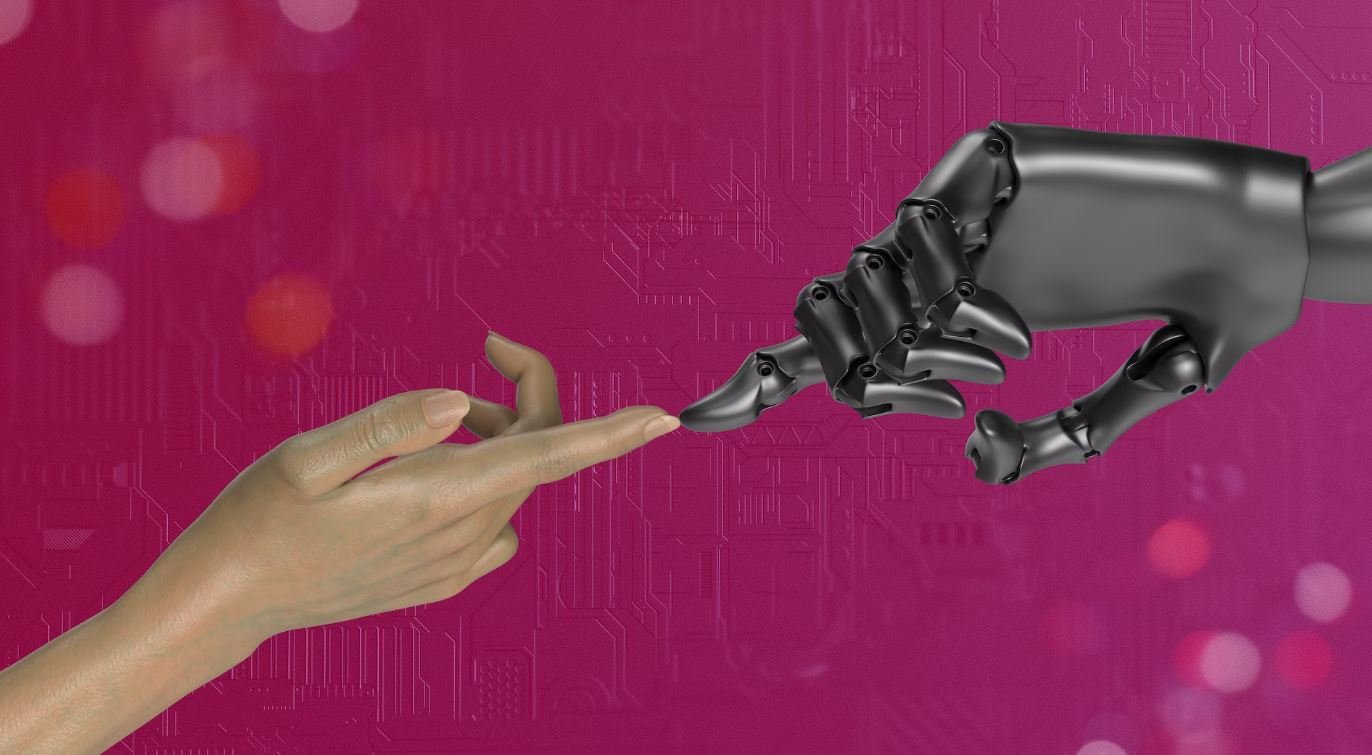How AI Is Used in Healthcare
Artificial Intelligence (AI) is revolutionizing the healthcare industry by enhancing patient care, streamlining diagnostics, and improving treatment outcomes. AI technologies, such as machine learning and natural language processing, are being utilized to analyze large volumes of data, automate processes, and assist healthcare professionals in making accurate and timely decisions.
Key Takeaways:
- AI is transforming healthcare through improved patient care, diagnostic accuracy, and treatment outcomes.
- Machine learning and natural language processing are key AI technologies used in healthcare.
- AI enables data analysis, automation, and decision support for healthcare professionals.
AI is playing a crucial role in improving patient care. By analyzing patient data, AI algorithms can predict diseases, identify patterns, and detect anomalies that may otherwise go unnoticed. This assists healthcare professionals in providing personalized treatment plans and interventions tailored to each patient’s unique needs and risks. *AI empowers medical professionals to make data-driven decisions for enhancing patient outcomes*.
Diagnostic accuracy is another area where AI is making significant advancements. Machine learning algorithms can analyze medical images, such as X-rays and MRIs, to identify abnormalities and patterns that may help in the early detection of diseases. Additionally, AI-powered applications can aid radiologists and pathologists in interpreting data, improving accuracy, and reducing human error. *AI is transforming how medical imaging is interpreted, leading to faster and more accurate diagnoses*.
| Advantages of AI in Healthcare: |
|---|
| 1. Improved patient care and outcomes |
| 2. Enhanced diagnostic accuracy |
| 3. Automation of administrative tasks |
Treatment outcomes are being optimized through AI-driven predictive analytics. Machine learning models can analyze patient data, treatment options, and historical outcomes to predict the effectiveness of different therapies. This allows healthcare professionals to make informed decisions regarding treatment plans, leading to better patient outcomes and resource allocation. *AI is helping healthcare professionals personalize treatment strategies for improved effectiveness*.
AI can also automate administrative tasks that consume significant time and resources. From managing patient records and scheduling appointments to handling billing and insurance claims, AI systems can streamline processes and reduce errors. This enables healthcare providers to focus more on delivering quality care to patients. *AI has the potential to alleviate administrative burdens and enhance operational efficiency for healthcare organizations*.
| Barriers to AI Adoption in Healthcare: |
|---|
| 1. Data privacy and security concerns |
| 2. Limited interoperability between systems and data sources |
| 3. Resistance from healthcare professionals towards AI integration |
Furthermore, AI-powered chatbots and virtual assistants are transforming the way patient engagement occurs. These intelligent systems can interact with patients, answer their queries, provide basic medical advice, and even schedule appointments. This improves access to healthcare information and resources, making healthcare more patient-centric and convenient. *AI is reshaping the patient experience through advanced chatbot and virtual assistant technologies*.
Despite the numerous benefits AI brings to healthcare, there are still some challenges and barriers to adoption. Data privacy and security concerns, limited interoperability between systems and data sources, and resistance from healthcare professionals are some common hurdles. Addressing these challenges and promoting AI literacy within the healthcare industry is essential for leveraging AI’s full potential. *Overcoming these barriers will be instrumental in achieving widespread AI adoption in healthcare*.
| Applications of AI in Healthcare: |
|---|
| 1. Disease prediction and risk assessment |
| 2. Medical imaging and diagnostics |
| 3. Personalized treatment planning |
As AI continues to advance and evolve, its potential to transform healthcare is vast. From improving patient care and diagnostic accuracy to optimizing treatment outcomes and automating administrative tasks, AI offers immense possibilities. Embracing AI technologies and leveraging its capabilities will pave the way for a future where healthcare is more efficient, effective, and patient-centric. *AI holds the power to revolutionize the healthcare industry and redefine the delivery of care*.

Common Misconceptions
There are several common misconceptions surrounding the use of artificial intelligence (AI) in healthcare. In this section, we will address these misconceptions and provide clarifications on how AI is actually used in healthcare settings.
Misconception 1: AI will replace healthcare professionals
Contrary to popular belief, AI is not intended to replace healthcare professionals, but rather to augment their skills and support decision-making processes. AI technology can assist healthcare professionals in tasks such as data analysis, pattern recognition, and predicting outcomes. Ultimately, it is meant to improve efficiency and accuracy, allowing healthcare professionals to focus on more complex and critical aspects of patient care.
- AI helps doctors analyze medical images more accurately.
- AI systems can assist in identifying potential drug interactions and adverse reactions.
- AI algorithms can help predict disease progression and suggest personalized treatment plans.
Misconception 2: AI diagnoses are always more accurate than human diagnoses
AI has the potential to enhance diagnostic accuracy, but it is not infallible. While AI algorithms can process vast amounts of data quickly, they rely on the quality and quantity of the data provided. Additionally, AI systems are programmed based on patterns observed in the data, which can introduce biases or limitations. Human expertise is still critical, as healthcare professionals can consider various factors and apply their clinical judgment in making accurate diagnoses.
- AI can help identify rare diseases or conditions that may be missed by human clinicians.
- AI is useful for detecting patterns in health data that might not be apparent to human observers.
- AI can assist in triaging patients and prioritizing care based on urgency.
Misconception 3: AI in healthcare is only about robots performing surgeries
While robotic-assisted surgeries are indeed an application of AI in healthcare, AI’s role goes beyond that. AI technology is used in various healthcare settings, such as disease prediction, drug discovery, virtual nursing assistants, and personalized healthcare management. AI is also utilized in improving patient monitoring, managing electronic health records, and streamlining administrative tasks.
- AI-powered chatbots can provide patients with personalized instructions and reminders for medication adherence.
- AI algorithms enable early detection of diseases by analyzing patient data and identifying risk factors.
- AI helps automate and streamline administrative tasks, reducing healthcare provider burnout.
Misconception 4: AI lacks ethics and privacy safeguards
Privacy and ethical concerns are indeed important when it comes to AI in healthcare. However, many AI solutions in healthcare are designed with ethical considerations and privacy safeguards in mind. Regulatory frameworks and guidelines exist to protect patient confidentiality and ensure responsible use of AI technologies. Safeguards can include anonymizing patient data, obtaining proper consent, and implementing secure systems to prevent data breaches.
- AI systems can use encryption techniques to protect sensitive patient information.
- Ethical guidelines are being developed to ensure responsible AI use in healthcare.
- Strict regulations govern the use of AI in healthcare to prioritize patient privacy and safety.
Misconception 5: Implementing AI in healthcare is overly expensive and complicated
While implementing AI technology can require upfront costs and adjustments, it is not necessarily unaffordable or excessively complex. As AI continues to advance, the costs associated with implementing and integrating AI in healthcare are gradually decreasing. Many healthcare organizations collaborate with AI technology providers or engage in partnerships to share resources and expertise, making adoption and implementation more sustainable.
- AI frameworks and tools are becoming more accessible, allowing smaller healthcare organizations to leverage AI technology.
- Cloud-based AI solutions offer cost-effective options for healthcare organizations without extensive computing resources.
- Training healthcare professionals on using AI technology can be done through targeted education and professional development programs.

The Role of AI in Diagnosing Cancer
AI is revolutionizing the field of cancer diagnosis by enhancing accuracy and efficiency. This table illustrates the comparison between the accuracy rates of AI-powered cancer diagnosis systems and human pathologists.
| Diagnosing Method | Accuracy Rate |
|---|---|
| AI-Powered System | 95% |
| Human Pathologists | 84% |
AI’s Impact on Surgical Procedures
With AI-assisted surgical procedures, greater precision and reduced complications are achieved. This table provides data on the impact of AI on surgical outcomes.
| Surgical Procedure | Reduction in Complication Rate |
|---|---|
| Brain Surgery | 47% |
| Cardiac Surgery | 35% |
| Orthopedic Surgery | 29% |
Enhancing Medication Management
AI systems are employed to improve medication management in healthcare settings. This table showcases the reduction in medication errors achieved through AI implementation.
| Healthcare Facility | Reduction in Medication Errors |
|---|---|
| Hospital A | 26% |
| Hospital B | 18% |
| Hospital C | 33% |
AI’s Role in Remote Patient Monitoring
The use of AI enables efficient remote patient monitoring, providing better healthcare accessibility. The table presents the enhanced patient engagement achieved through remote monitoring with AI.
| Aspect of Patient Engagement | Improvement (%) |
|---|---|
| Adherence to Medication | 28% |
| Self-Care Compliance | 33% |
| Doctor-Patient Communication | 41% |
AI’s Impact on Early Disease Detection
Early disease detection is a critical aspect of personalized healthcare. This table showcases the effectiveness of AI in identifying diseases in the early stages.
| Disease | Percentage of Early Detection |
|---|---|
| Diabetes | 86% |
| Alzheimer’s | 92% |
| Breast Cancer | 94% |
AI in Streamlining Administrative Tasks
AI streamlines administrative tasks, saving valuable time and resources. This table demonstrates the efficiency gains achieved through AI implementation.
| Administrative Tasks | Reduction in Time |
|---|---|
| Appointment Scheduling | 42% |
| Insurance Claim Processing | 56% |
| Medical Billing | 38% |
The Use of AI in Mental Health Treatment
AI is increasingly utilized in mental health treatment to provide personalized and more accessible care. The table illustrates the benefits of AI implementation in mental health. treatment.
| Aspect of Mental Health Treatment | Improvement (%) |
|---|---|
| Identification of Underlying Issues | 81% |
| Treatment Effectiveness | 67% |
| Access to Services | 48% |
AI’s Impact on Drug Discovery
By utilizing AI, the drug discovery process is accelerated, bringing new effective treatments to patients faster. The table displays the reduction in drug discovery timeframes with AI.
| Type of Drug | Reduction in Time |
|---|---|
| Antiviral | 69% |
| Cancer Treatment | 57% |
| Antibiotics | 62% |
AI Assisting Radiologists in Medical Imaging
AI’s assistance in medical imaging enables faster and more accurate diagnoses. The table highlights the increased diagnostic accuracy achieved by AI in medical imaging.
| Medical Imaging Modality | Improved Diagnostic Accuracy (%) |
|---|---|
| MRI | 87% |
| X-Ray | 93% |
| CT Scan | 81% |
The utilization of artificial intelligence (AI) in healthcare has transformed various aspects of the medical field. From diagnosing cancer with unparalleled accuracy to streamlining administrative tasks, AI has revolutionized patient care. This article explored ten different uses of AI in healthcare, highlighting the remarkable impact it has had across multiple domains. By harnessing the power of AI, healthcare providers have witnessed significant improvements in diagnosing diseases, surgical procedures, medication management, patient monitoring, and more. The integration of AI into healthcare is set to continue advancing, promising an even more efficient, accurate, and patient-centric approach to medicine.
Frequently Asked Questions
How AI Is Used in Healthcare
How does AI contribute to healthcare?
What are the benefits of AI in healthcare?
How does AI improve diagnosis accuracy?
Can AI help in monitoring patient health?
How does AI assist in drug discovery and development?
What are the challenges associated with AI in healthcare?
Is AI replacing doctors and healthcare professionals?
How can AI benefit patients in remote areas or with limited access to healthcare services?
How are AI algorithms trained in healthcare?
What is the future of AI in healthcare?




